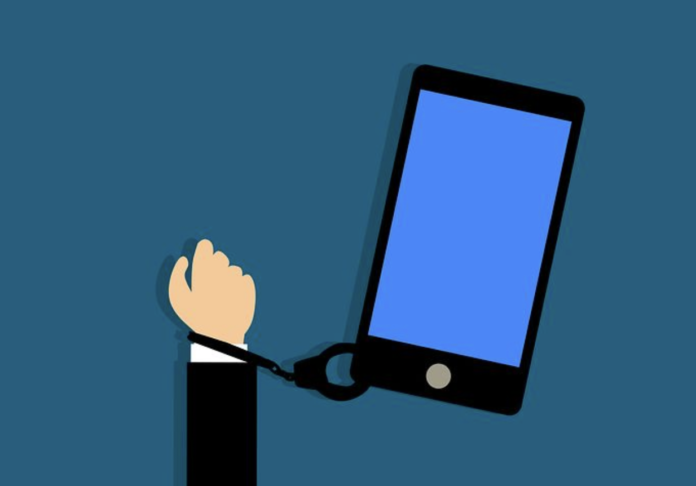
T’Ahara Willis | Feb. 14
Staff Writer
Social media has benefited millions allowing for faster and easier ways of communication.
With the growth of social media, it has expanded its benefits from just being a form of communication to including entertainment.
There are many good aspects about social media, but are the cons of social media outweighing the good?
“I don’t have TikTok because I will spend 10 hours on it,” said Isabella Maisonette.
Maisonette, 18, and a freshman biochemistry major at Florida Southern College, knows just how addicting social media can be.
“I’ve always [procrastinated] because of social media… that’s why I hate Instagram and YouTube now,” Maisonette said.
Some would describe social media as a dark rabbit hole that’s easy to climb into but hard to get out of.
According to Statista.com, the average user spends two hours and 45 minutes a day on social media.
The biggest targets appear to be Generation Z, those born between the years 1997-2012. Born into the technological era, smartphones are a must have for this generation.
A lot of people don’t consider social media a drug but do believe that it is easy to get addicted to.
“There is ongoing research about addiction to social media. Whenever people hear the word addiction they think drugs, they think something physically addictive,” said Patrick Smith.
Smith, a professor in the Department of Social and Behavioral Sciences at Florida Southern, specializes in the studies of neuroscience and psychopharmacology.
When it comes to defining addiction Smith says there are important things to keep in mind.
“Psychologically people are attracted to it and want more. It is important to know that addiction is often marked by a dependence or a withdrawal response when the thing that you’re addicted to goes away,” he said.
The feelings of pleasure a person gets when using social media makes them want more. Science confirms that there is a psychological response people get when using social media that makes them crave more.
“Certain substances like dopamine, even though there is not a direct agent that is affecting the human nervous system, produces a psychological pleasure that you condition yourself to create,” he said.
There is evidence that there are addicting effects that come from the use of social media. The chemical responses created in the body when using social media can be human conditioned, allowing social media users desiring to feel less stressed or less anxious to be dependent on social media for a boost of dopamine.
Smith says the signs to show whether a person is too dependent on social media are most evident in the withdrawal phase, causing the user to present signs of anxiety and stress.
Talia Dorsa, sophomore, and a biology major at FSC estimates using social media four hours daily.
She believes social media causes her to procrastinate, “especially during homework.”
Dorsa feels she is constantly checking her phone, and when she has downtime and no plans for the day she chooses to scroll on social media.
Though Dorsa is an avid user of social media, she believes that social media doesn’t intrude on her daily life. “I try to have an hour of no screen time before I go to bed,” she said.
Most responses by FSC students shared that social media for them is used to procrastinate most of the time, but it in no way stops the flow of their lives.
Ren Conche, senior, and a psychology major at FSC, says he uses social media fairly often.
“I definitely use social media to procrastinate…if I want to avoid something social media is my go to,” Conche said.
Conche also believes that his social media use is excessive, but still believes he is in control. “I don’t need help yet,” he said referring to his ability to detach himself from social media.
“I can normally, if I have a deadline, get it done,” he said.
The proof of addiction to social media manifests through a person’s mental and emotional state, according to Smith.
“Unlike physically addictive substances that have been shown to have an impact on the brain, the changes in the brain with social addiction are signs after they are withdrawn. Whether it be conditioned or from a pharmacological agent you see the clinical signs when they’re taken away [like] anxiety and stress,” Smith said.
The research revealing the actual process of becoming addicted to social media still remains undiscovered.
“We see the after-effects that line up with addiction but the actual process to getting addicted to social media is still being explored,” Smith said.
Though most FSC students said they procrastinate using social media, for one student social media was not a problem at all.
Tabitha Johnson, sophomore, and a biology major at FSC says she uses zero hours of social media because she doesn’t have social media.
“I just never got into it,” she said.
FSC students agree that social media is a problem that can stifle productivity, but not necessarily has to be addicting.
There is still much to learn about the addictive effects of social media, however, those who have avoided the addictive effects of social media have shown that they don’t allow it to stand in the way of their daily lives.







